Alumni Spotlight: Denise Reid: Double Husky, and A Collector of ‘Firsts’
A “Double Husky” is someone who attains more than one degree at Northeastern University.
In Denise Reid’s case, as the ‘Double Husky’ Associate Director of Communications, Social Media, and Brand Management for the College of Professional Studies (CPS), she helps the college understand the value of the online community. And she understands our mission, from more than one perspective.
In the last decade, Reid has applied her unique life experience to strategic action for Northeastern University on the digital front. She graduated with an MBA from D’Amore Mckim School of Business while working full-time to build and manage the university’s social media platforms. She grew these platforms to valuable size, and she continues to build on these strengths.
Reid was born in Boston and raised by her parents, Dwayne and Bridgette, both Jamaican immigrants. When she was just ten years old, her father was deported after being racially profiled and harassed by a client who hired his livery service. The entire family was forced to return to Jamaica, where Reid continued her education at a private school. She said, “My parents weren’t wealthy, but they always prioritized education for their kids.”
Five years later, at 15 years old, Reid was sent back to Boston by her parents to attend high school. She said,
“They thought it was best to send me back and my mom was like ‘You need to go to college’. While she didn’t go herself, she knew the value of it [education].”
She moved in with her grandparents who resided in Dorchester, and she attended Boston Public School (BPS). Her re-emigration was a difficult transition. “I live between two different worlds. I’m Jamaican but was born here. So, the Jamaicans are like ‘You’re not Jamaican’ and I’m like ‘but I am.’ Then I move back to the States and the Americans are like ‘You’re not American’ and I’m like ‘But I am’.”
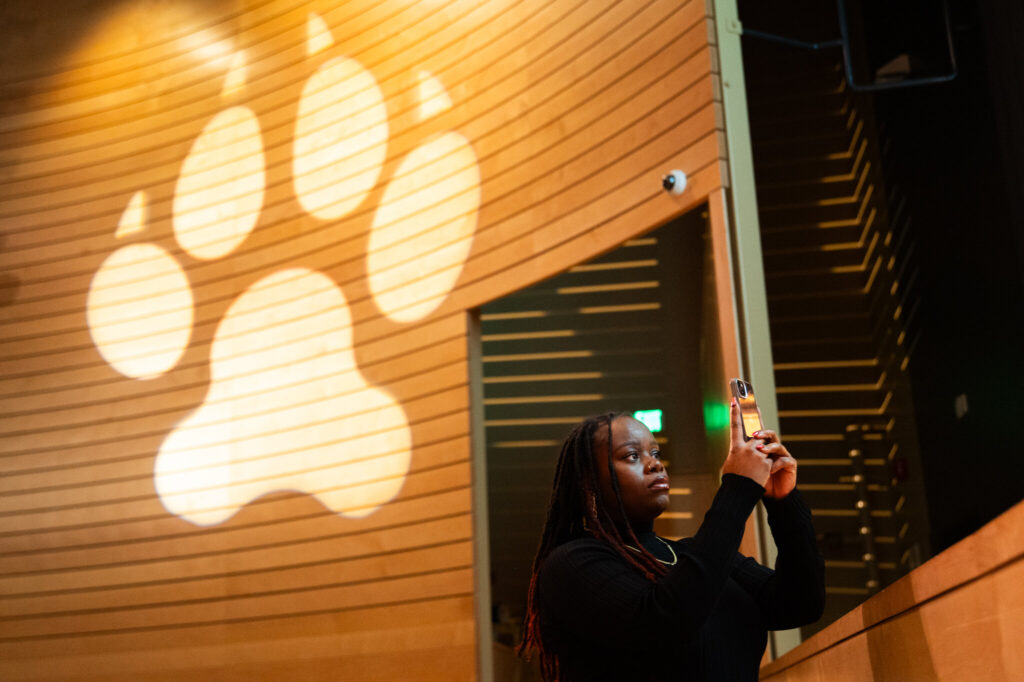
While at BPS, Reid experienced a curriculum that was less rigorous than it was in Jamaica, and she soon found herself enrolled in advanced placement (AP) classes for the duration of her high school years. She said, “By my senior year, I attended [a prominent Boston-based university] through a partnership program that my principal championed. I received college credit for English 101 and English 102 courses and every day, we were allowed to leave school at BPS to attend class on university campus and this experience gave me a window into college and for the first time.” she said.
During this time, Reid experienced another ‘first’. “Unfortunately, my time in the partnership program also gave me a window into the world of ‘microaggressions’. Some of the professors treated us differently, and it was the first time I really felt marginalized.” Reid describes professors assigning books about poor inner-city circumstances and then expecting the teens to relate to its subject matter directly.
“They would intensely ask, ‘How do you feel when you read stuff like this?’ I’m looking at this professor like ‘I didn’t realize that you thought I was poor!’ It was the first time I felt that a narrative was being pushed on me from the outside. And then I started to wonder, ‘Is this really how the world sees me, or am I just being painted this way?’” Reid says that this experience also prepared her with expectations of going to a predominantly white institution as a Black student. She said, “I realized I needed to learn how to navigate that.”
So I started to take responsibility over my own narrative because I didn’t want people to place that on my authentic identity. If you’re going to know me, you will learn that from me and not what you think you learned from TV or wherever
DENISE REID
Reid said, “This was the first time I could identify with my father’s struggle because he came to the U.S. as a ‘whole citizen’ earning a living as a cab driver and one encounter with a customer led to him having to defend himself in an environment where they essentially forced him to plead guilty to charges that ultimately got him deported.” She said, “They were forcing my dad to be a person he wasn’t, and in my classroom as a high schooler, some painted me to be who they thought I was, and that was the first time I realized all of this.”
After graduating high school, Reid applied to a program called ‘Bottom Line’ which provides college counseling for inner-city youth. The program identified and secured scholarships that paid the way for Reid’s first year at St. Johns University in Queens, New York. But she failed to secure funding for the second year. “It was a diverse college and I loved being immersed in all the cultures,” she said.
Without the ability to pay after that second year, Reid returned to Boston in 2010 and began working in retail at places like Forever 21 and H&M – and she felt depressed. Resolved to resume her education, she soon enrolled at Bunker Hill Community College in Boston. “I decided to just take one class,” she said.
That one class turned into two, then three.
Introduction to Northeastern
In 2011, a friend who worked at the Northeastern Office of Student Employment called to see if Reid wanted to work a summer job in that department. She jumped at the chance. The office’s executive assistant went on maternity leave and that provided Reid the opportunity to extend her employment there. While in that role, two things happened: a large digital media project presented itself and they asked Reid to work on it, and the former executive assistant did not return from her second maternity leave of absence. At 19, Reid landed her first full-time job working on digital media strategy at Northeastern.
That’s when Reid enrolled in the Organizational Communication bachelor’s program at CPS, made possible by the program’s evening course schedule. She recalls, “Balancing a full-time job with studying didn’t really give me the full experience of being a college student; I was able to do a couple of things in my job that did prove helpful to the program, but I didn’t feel like I walked away with a strong skill set that made me an immediately attractive candidate in my field.” she said.
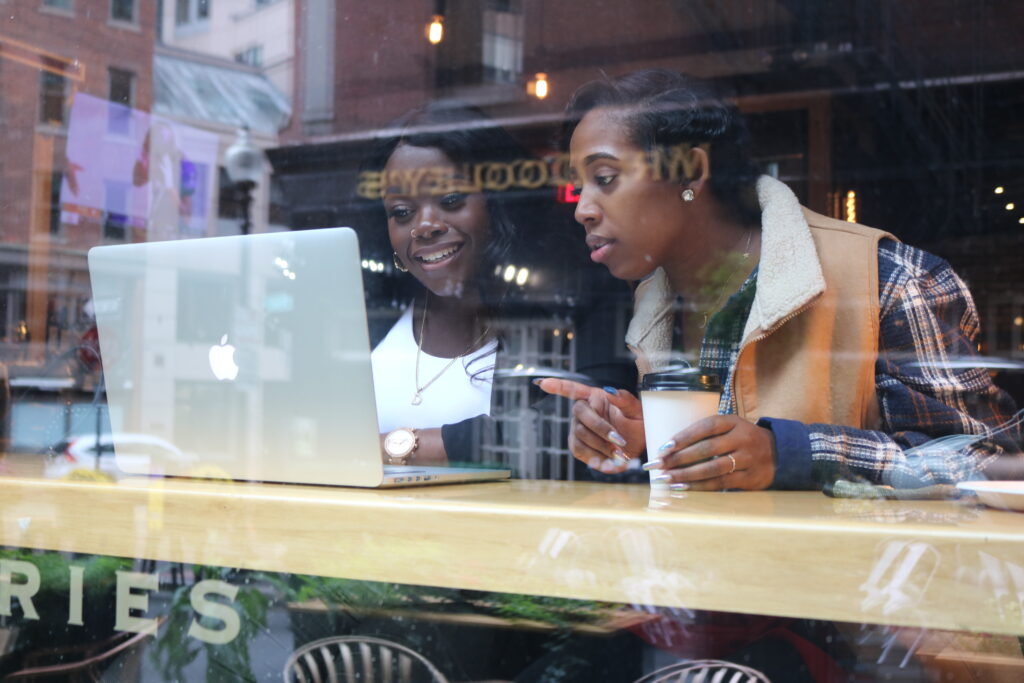
In 2018, Reid became the first person in her family to attain a bachelor’s degree.
Still working in the Student Employment office, Reid decided to use her free time to network. “I got more involved in committees at Northeastern, like NU Dream (for Black and Brown faculty) and other things. There are so many groups on campus to explore,” she said.
By the end of the year, her boss recommended her for a full-time role in the Residential Life Offices for digital media. “Around that time across most industries, people were underestimating or just not understanding the value of social media but they also understood that they needed to have it, so my job included doing budgets and operational tasks in addition to the social media part,” she said. Reid built the office’s first social media platform, and in December 2019, she was asked to work at CPS as the college’s Student Engagement Manager, a role that was an amalgamation of communications, events, and social media. Just like she had done at Residential Life, Reid built out the college’s first comprehensive social media platform for the college and is still growing its audience.
She also thought about going back to school. In January 2020, Reid enrolled in the Master of Business Administration with a concentration in marketing. “Just in time for the pandemic!” she jokes.
Shortly after both her master’s program and the COVID pandemic began, George Floyd was murdered and the country rallied behind Civil Rights advocacy and Black Lives Matter protests. Reid, alongside Earlene Avalon, established CPS’s first Equity and Inclusion Council to advise the Dean. That initiative yielded the college’s first DEI Director, a role appointed to Magali Feruzi.
This was a challenging time for Reid.
“I enrolled in my MBA so excited to get the support of a collaborative environment and that was all gone as we migrated to online learning in isolation. By the end of my first year, I contemplated quitting, and I almost did!”
– Denise Reid
Reid took a hiatus from her studies in the first semester of 2021. “It was just a lot. I needed to take time for myself; I had to process all of it. But when I saw how many credits I had left to finish, I saw that I was halfway there and realized ‘I can’t give up now!’”, she said.
Reid graduated with her MBA in May 2023. She was the first in her family to attain a master’s degree.
Credited with crafting CPS’s first social media strategy, and now equipped with knowledge of the strategic framework to go even further in her career, Reid had successfully established a powerful Instagram presence on the student side and the CPS Dean asked her if she could do the same for the entire college.
In 2022, Reid stepped into her current role as Associate Director of Communications, Social Media, and Brand Management.
I love making each of our social platforms powerful drivers of our key message of access and opportunity to education that transforms futures. Social media is about storytelling, experimenting, and finding community in relatability. I leaned into my own personal narrative to make this happen for CPS, and I realized when I started our Instagram, as a student myself, that what I am actively going through is relatable to our student population.”
Denise Reid
“I believe the strength of our college is the power to storytell. It really transforms the future. This college always seems to have the genetic makeup of resilience. Students that come through here, faculty and staff, are resilient leaders, and their stories not only deserve to be told but telling their stories keep the door open for those who may not otherwise see their way out of their circumstances.” she said.
How CPS Helped Raissa Talehata Turn a Concern About Food Waste into a Full-Time Career as a UX Climate Designer
Raissa Talehata, who just graduated from CPS with a Master of Professional Studies in Digital Media in 2022, remembers giving a presentation to her classmates in Australia during her junior year of high school about food waste in Solo, Java, Indonesia. She did not know then how researching food waste problems would become a permanent fixture in her own life. The damaging 2015 wildfires in Australia and her shock and dismay at the huge portions served at Boston restaurants were things that deeply motivated her interest in food waste. These experiences, coupled with her education, eventually led her to develop an app prototype that enabled consumers to manage their food inventory and reduce waste.
Raissa initially attended the University of Melbourne, Australia, for a bachelor of commerce degree in accounting and finance. She then received her first master’s degree at the Hult International School of Business in Cambridge, Massachusetts.
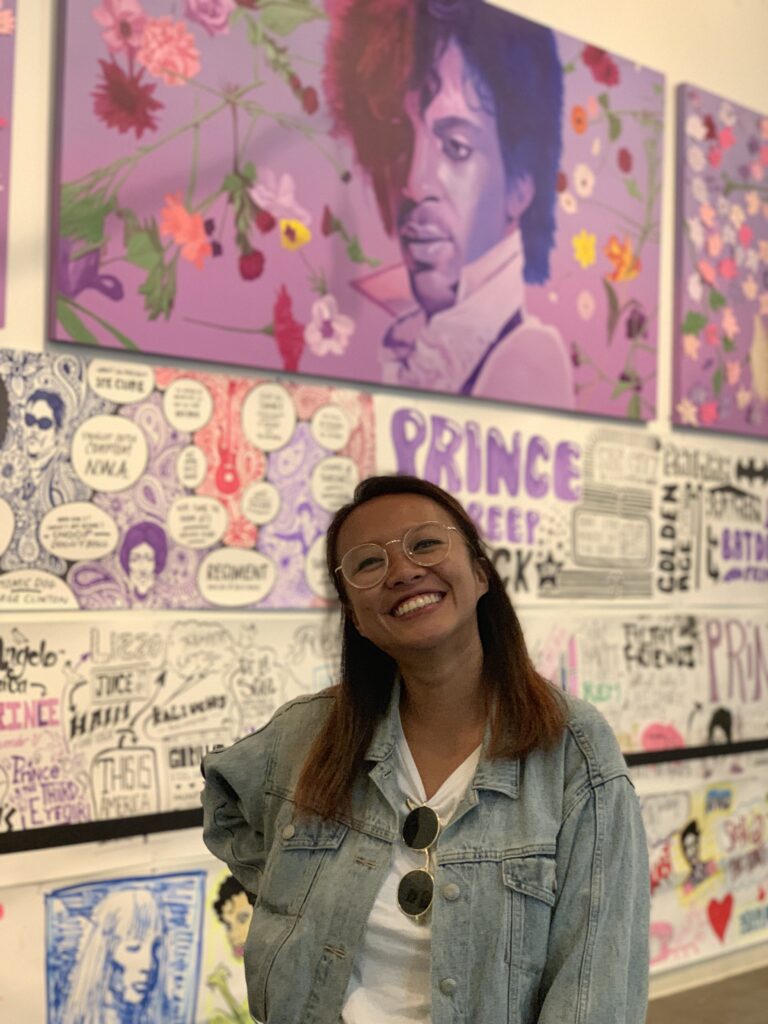
“I chose Northeastern University because of its great reputation in preparing students to face and tackle the real-world issues; it is not just knowledge, but the informed application of this knowledge to real-world situations.”
Intersectionality of Business, Communications, Design, and Global Social Issues
For today’s consumers, Raissa realized she needed to expand her skill set beyond business and finance and focus on emerging technologies, user experiences, and interactive design. She found what she needed in the College of Professional Studies graduate digital media program. She said that, “My faculty mentors Cynthia Barron, Tania Schlatter, Carl Zangerl, and Edward Powers, made huge impacts.”
In 2020, Raissa was planning on doing a co-op in the summer, however, that experiential learning experience had to be postponed because of the pandemic. Instead, she learned of other experiential learning opportunities: one being the creation of a virtual public relations (PR) agency called Husky Communications overseen by faculty member Ed Powers. That summer, Raissa and other students developed a digital product and website for the virtual PR firm. Their work included interviewing stakeholders, developing a brand, conducting user research, creating digital content, and designing solutions. She also worked on website designs for Inspire & Influence, a blog for Northeastern’s communication, digital media, and human resources professionals; and for NU Media, an innovative platform to showcase student stories, innovations, discoveries, and achievements with internal and external audiences.
Benefits of Experiential Learning
Experiential learning gave Raissa immediate work skills and the confidence to define and identify business problems, develop creative solutions, and solve complex challenges. These projects helped her land her current job as a UX Designer at a local design firm in Cambridge, Massachusetts.
“Being a part of the Husky team was a stepping stone for me, as it not only sharpened my technical skills but also developed my soft-skills that could be easily transferable to all different types of businesses – it gave me the competitive edge,” said Raissa.
She also won two awards during her graduate studies: the Northeastern Outstanding Graduate Student Award in Experiential Learning and the CPS Experiential Learning XN Excellence Award.
Raissa has many titles in her current work. She is a web developer, a user experience (UX) designer, and a climate designer, the last is defined as a person who devotes her creative talents to working on the climate crisis.
“My goal is to raise awareness about how seriously we need to take actions as individuals, as well as collectively to deal with global warming. That also means that I am dedicating the next few years of my career to be a UX Designer for organizations that support climate actions.”
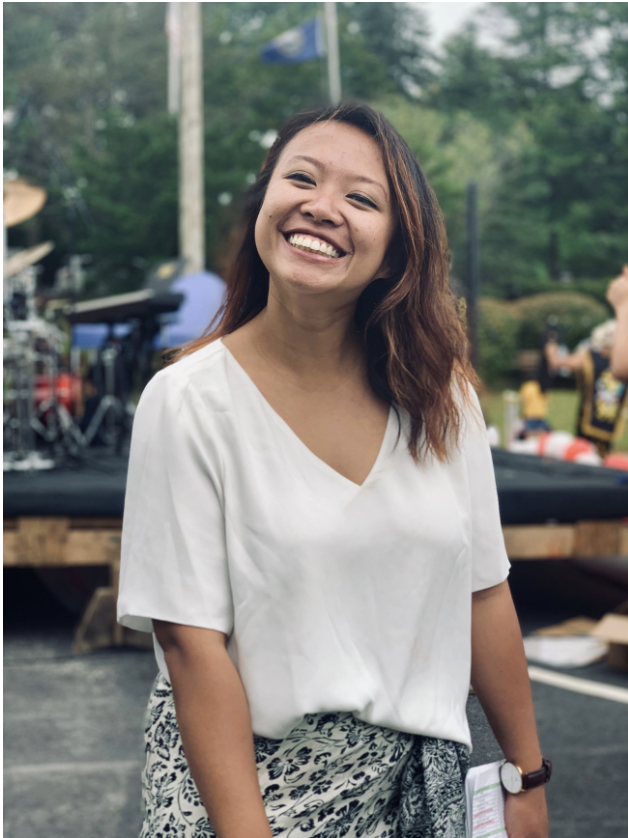
‘I Want To Be Able To Change Things at Scale’
In his work as an educator and an advocate for social justice, Dean’s Medal Award Winner Jae Williams harnesses the power of story
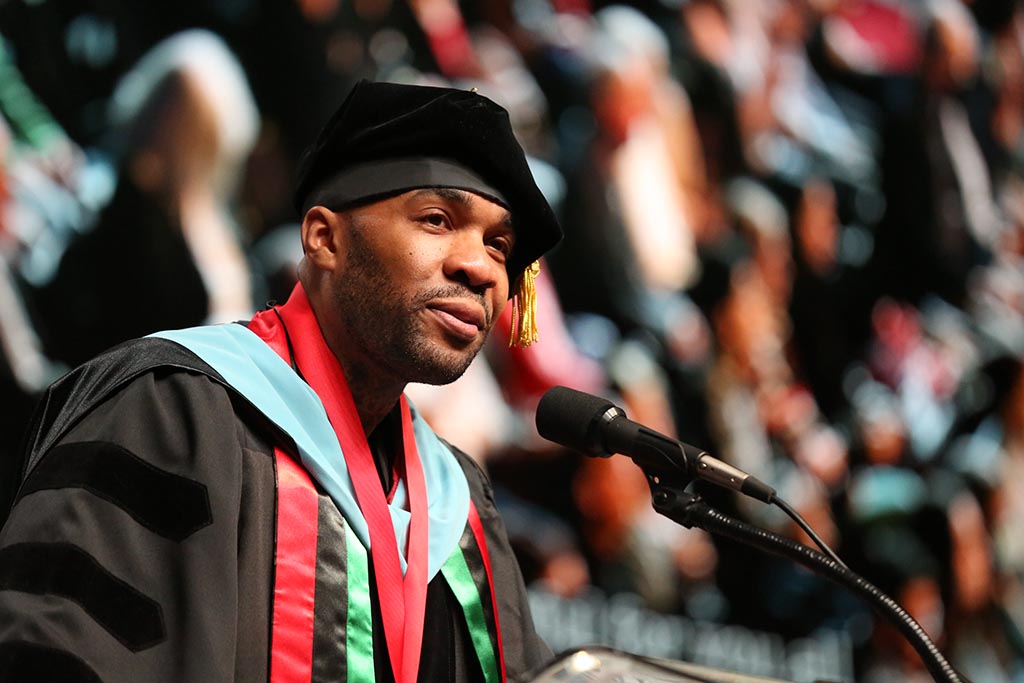
According to Jae Williams (EdD, ’22), it was music that taught him how to tell stories—and stories that taught him how to teach. From Marvin Gaye to Jay-Z, the educator, podcaster, and social justice advocate says, the narratives of suffering and hope that emerged in the music he loved got into his bones. Now, he says, the storytelling instincts he first encountered while listening to those songs form the foundation of his pedagogy and his activism.
“Stories are what make us human,” says Williams, who this year was awarded the prestigious Dean’s Medal for Outstanding Doctoral Work. “In my classes, I try to connect any complex concept to a practical story of how people engage. It’s very difficult for us to remember things that are not connected to story.”
Williams has taught digital storytelling at Berklee College of Music and at Emerson College (both in Boston), worked as a video production instructor at institutions including the Cambridge Center for the Arts, and served as a film and creative-writing mentor at Boston’s Institute of Contemporary Art.
Recently, he began two new projects that combine his passion for storytelling and teaching with his pursuit of equity and inclusion as an advocate for social justice.
In June, he launched a podcast, “Dr. Jae’s Office Hours,” in which he invites experts in diverse fields to discuss their work, an approach that has yielded an eclectic range of topics reflecting the unusual breadth of his own interests and experience. Recent episode titles include “Be UNAFRAID to Ruffle Feathers” with Dr. Sylvia Spears, vice president for administration and innovation and distinguished professor of educational equity and social justice at College Unbound; “How to Balance Professionalism and Authenticity,” featuring advice from author and educator Dr. Marcus Broadhead; and “The Process of a Creative Producer,” with Nerissa Williams Scott, creative producer and CEO of That Child Got Talent Entertainment.
“Dr. Jae’s Office Hours is a podcast highlighting the work and stories of this generation’s creative thinkers, leaders, and dreamers,” Williams says. “And it’s a personal and professional-development podcast for college students of color—because I felt like it’s almost impossible to be what you can’t see. And I’m a product of that. I’m a product of being able to see all the different things that I wanted to explore, but not seeing anybody that looked like me doing them.”
The Creative Café Collective
Williams is also the originator of the Creative Café Collective, a media production company that creates educational content for higher education and students of color. The goal of the Collective, Williams says, is to make higher education a more welcoming space for students of all backgrounds—but especially those who have been traditionally underrepresented.
“The Creative Café Collective is a student retention, belonging, and inclusion program for students of color,” Williams says. “It’s open to all students, but it centers students of color at these predominantly white institutions to give them an opportunity to feel special, and to feel like once they graduate, they have a network of people that actually care and actually want to help them succeed and thrive in their career paths.”
Williams’ own career has reflected the range of his talents, with an emphasis on finding frames and narratives to express individual, community, and institutional stories in compelling ways.
He served as senior communications coordinator at Perkins School for the Blind in Watertown, Mass., as associate director of content strategy at Emerson College, and as director of special projects at Emerson’s Social Justice Center. He also serves on the boards of multiple nonprofits, and he has won awards that include Emerson’s Young Alumni Achievement Award and three Independent Music Video Director of the Month awards from MTV.
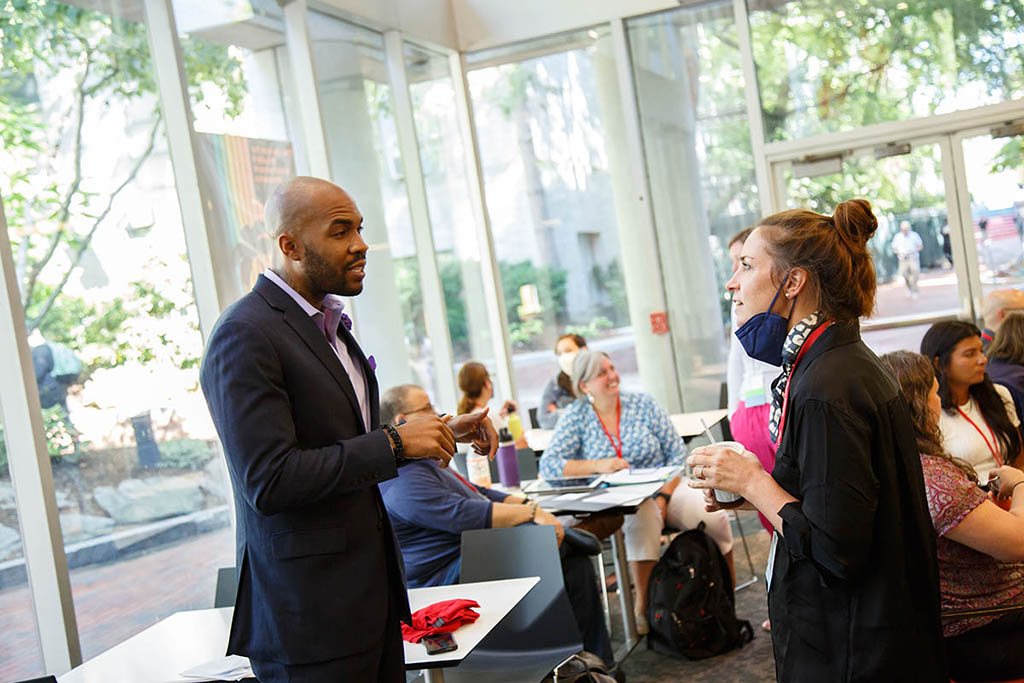
Educational Inspiration
Williams traces his interest in education to a classroom at the Perkins School, where in the summer of 2013 he signed on to help blind students learn to create and direct films. When parents came to see the final presentations, Williams says, watching them and his students shed tears of pride and accomplishment was an indescribable feeling.
“They were literally crying, showing their parents,” Williams says. “And the parents were emotional. And we just had so much fun! That was the first time that I realized teaching is what I love to do. I’ve gone on to teach in a lot of different capacities, but it was in that classroom, teaching those students, with those abilities, the power of storytelling—but more importantly, the power to witness someone discovering themselves, or something new. To me, that is what drives my passion for education. Those students changed my life.”
Stirred by his new-found passion for education, Williams decided that if he wanted to have a significant impact, he would need to deepen his understanding both of his topic and of the world of academia.
“I want to be able to change things at scale,” Williams says. “Not just in a micro-moment in the conference room, or in the break room, or in the hallway, or in the elevator. And the only way I can do this at scale is if I have the language. And so if I can get the language of how [scholars] speak, and blend that with how I speak, then—then—I can make an impact in the way that I believe I was gifted to make.”
Opening doors to those kinds of breakthroughs for others has become an essential part of Williams’ work. His doctoral thesis, America’s Empathy Deficit: Our Bloody Heirloom and the Invisible Backpack, explores the college experience of Black male visual performing-arts students at a pseudonymous institution of higher education in the Northeast. Written as an open letter to his undergraduate alma mater, which he calls Storytelling University, Williams details the obstacles faced by students of color and offers proposals for how to mitigate those challenges.
‘We must face our truths’
In his speech at Northeastern’s 2022 commencement ceremony, Williams drew upon his thesis and his personal experience to instruct and inspire.
“We must face our truths—even our ugly truths—about ourselves and this country,” he told his fellow graduates, urging them to stand up for the disempowered in any way that they could. “If you cannot be the poet, be the poem. If you cannot be on the front lines, then speak up from behind the scenes. If you cannot offer the seat at the table, then ask who is not at the table and why.”
In the video of Williams delivering his speech, there is a moment near the beginning when his voice wavers, and he pauses to compose himself. He blows out a ragged breath, and then he smiles.
“I’m gonna get through this, y’all,” he says. “I’m gonna get through it.”
The palpable emotion of that moment, Williams says, arose from his awareness that the honor he had earned was in fact becoming a reality. Until that moment, he hadn’t really believed it.
“Entering the doctoral program at the College of Professional Studies,” Williams says, “I had a severe case of imposter syndrome. Being a man of color, being a Black man, with body art, hip-hop, all of these things, the world has told me that education is not for me.”
‘Be yourself, be yourself, be yourself’
Support from faculty helped.
“I had amazing professors like [Associate Teaching Professor] Wendy Crocker, and my dissertation supervisor, [Associate Teaching Professor] Lindsay Portnoy, and my third reader, [Associate Teaching Professor] Melissa Parenti,” Williams says. “They just encouraged me and said, you know, be yourself, continue to be yourself, don’t be afraid. Be yourself, be yourself, be yourself.”
But standing at the podium brought to mind some troubling things too, Williams says, about ways the academic establishment had made him feel he didn’t belong.
“When I got up on that stage, and I saw all these people,” Williams says, “it was so overwhelming, because I’m like, you guys don’t even know what it took for me to get to this point.”
Having completed his thesis—and earned the highest honor CPS confers upon a doctoral graduate—Williams is now focused on unifying two essential strands of the passions in his life.
“In terms of storytelling and my education journey, I’m really trying to make them into one cohesive thing,” he says. “When my students see me, and they see me with my shorts, or my Jordans, or my Chuck Taylors and my tattoos and my hat, they’re like, ‘Wow, now I’ve actually seen somebody that looks completely different but is operating at the same exact level.’ So now when they see a bald Black guy with a beard and tattoos, they’re not thinking he’s a threat. They’re not thinking he’s a basketball player only, or he’s some rapper. They’re thinking, ‘I met Dr. Jae, and he taught me something.’”
Professor Ted Miller Discusses His Recent Biography of Robert Welch on NPR
Conversation explores the historical seeds of right-wing conspiracy theories
A widely praised book by Teaching Professor Ted Miller garnered further reach recently when the author was interviewed by journalist Anthony Brooks and news analyst Jack Beatty for NPR’s “On Point” (usually hosted by Meghna Chakrabarti). Distributed to over 290 public radio stations across the U.S., the show averages more than two million podcast downloads a month.
In a substantive, engaging conversation of about 45 minutes, Brooks, Beatty, and Miller discuss Miller’s A Conspiratorial Life: Robert Welch, the John Birch Society, and the Revolution of American Conservatism. The book, the first full-scale biography of Robert Welch, founder of the John Birch Society, explores Welch’s penchant for conspiracy and finds links between his activities in the mid-20th century and the recent rhetoric of the Tea Party, the Trump administration, the “Q” movement, and others.
Miller, who grew up in Weymouth, Mass. and has taught at Northeastern for more than a decade, earned praise for his latest book from outlets that include the Times Literary Supplement and The New Republic. In addition to A Conspiratorial Life, Miller is the author of Nut Country: Right Wing Dallas and the Birth of the Southern Strategy. While his first book was well-received, his most recent has drawn increasing national attention, and he has published related op-eds in national media that have included the Washington Post and the Los Angeles Times.
In a recent profile on the CPS website, Miller pointed out one possible reason for increased interest in the roots of conspiracy on the right: “As we got closer to the date of publication,” Miller said, “it just kept getting more relevant. In many ways I wish it wasn’t so relevant. It was kind of a hard book to write, because while I was writing it we were seeing a lot of these same themes—the reluctance to embrace democracy, the conspiracy theories—start to play out.”
Among the subjects Miller discussed in the NPR interview was the historical context that led to the rise of the John Birch Society. Welch, Miller notes, even went so far as to claim Eisenhower had stolen the 1952 Republican nomination.
The conversation ranges widely, encompassing historical analysis and contemporary politics. Bob Dylan, Richard Nixon, Ronald Reagan, and William F. Buckley Jr. are among a wide cast of characters who make appearances as Brooks, Beatty, and Miller discuss the ways that scholarly explorations can shed light on modern challenges. In some ways, Miller says, “Robert Welch never went away.”
For the NPR journalists seeking to find political lessons in history, that is exactly the point. As Beatty puts it, “This book represents the search for a usable past.”
An Accelerated Degree in Organizational Leadership
With the job market for management positions projected to grow rapidly until at least 2030—and U.S. companies eager to fill a self-described “leadership gap”—an accelerated master’s degree program centered on experiential learning prepares graduates for success in a broad range of fields.
“The new One Year Experiential Master of Science in Organizational Leadership can benefit professionals from all industries,” says Les Stein, assistant teaching professor and faculty director of the program. “This is a one-year degree that can energize graduates’ careers, make them more competitive in their individual professions, and offer opportunities to change their career trajectories or to grow within their current professional context.”
According to Stein, participants in the new program will begin with an introductory course in leadership in which they will conduct a self-inventory of their leadership skills, identifying areas of strength and opportunities for growth. In classes of 15 or fewer, students will explore a wide range of leadership styles, with special emphasis on understanding the ways digital technologies have shifted the landscape of leadership, with social media creating both new risks and new opportunities.
With sponsors from technology, healthcare, manufacturing, financial and other industry sectors providing meaningful, priority projects, and concentrations available in six categories—Coaching, Health Management, Human Resources Management, Leading and Managing Technical Projects, Organizational Communication, and Project Management—the new master’s degree program will give students ample opportunity for experiential learning. Representatives from industry partners will serve as speakers and lecturers, and students will work directly with partner employers to solve problems and connect with industry experts as they navigate the theories and techniques of leadership. The program is designed as a cohort model, offering students the opportunity to develop a network of peers, faculty, and potential employers.
“The accelerated, experiential Master of Science in Organizational Leadership will offer you valuable relationships with your program cohort as you gain firsthand experience in several industries and work alongside experts on real-world projects,” Stein said. “In just one year, you will complete your degree, add considerable connections to your professional network, and become a better candidate for your next promotion or dream job.”
A Journalist Reborn
When his industry—and a brilliant career—suddenly collapsed, Ian Thomsen MPS’21 launched a personal reinvention for the digital age
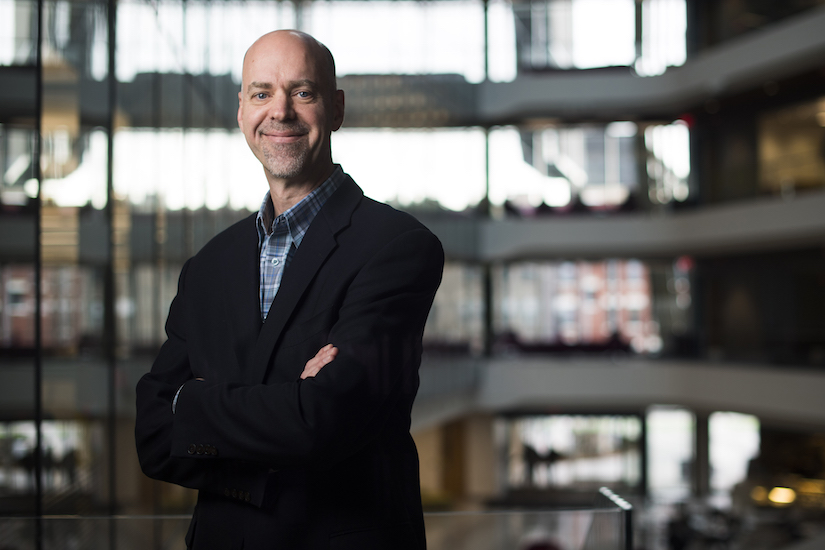
“This is the tale of an old man who dreams of telling a new story.”
So begins Ian Thomsen’s master’s thesis, in which the 2021 College of Professional Studies (CPS) graduate recounts his journey to spectacular professional success—followed by the equally spectacular implosion of his industry and career. Among the most successful sportswriters of his generation, Thomsen saw his working life shattered by the advent of online media and its decimating effect on the print-news industry.
As magazines and newspapers trimmed budgets and staff and his own assignments grew sparse, Thomsen says, “I realized that the page had turned. The instruction manual for a career as I had known it was out of print—in fact, it wasn’t even being printed any longer. I needed to learn the systems of a new era. And the new instruction manual is digital.”
Thomsen became a student of that new manual in 2018, when he enrolled in CPS’s Digital Media graduate program and embarked on a personal reinvention for the digital age. Three years later, with new skills, a new appreciation for interaction with his readers, and a new online newsletter, the self-declared “refugee of the bygone print-media industry” is ready for the next chapter.
Choosing journalism
Thomsen’s rise in what is now often called “traditional” or “legacy” media was nothing short of meteoric. The son of immigrants and the first in his family to attend college, he remembers sitting at the kitchen table at his parents’ home in Mobile, Alabama, circa 1978, working on college applications and discussing career possibilities with his mom. He had written for his high school newspaper, and reporting appealed to him.
“At the time,” he says, “it was the only thing I could think of that I might be qualified to do.”
Thomsen turned out to be very qualified and, as he tells it, very lucky. As an undergraduate at Northwestern University’s Medill School of Journalism, he joined the student newspaper. In his junior year, he won an internship on the sports desk at the Boston Globe. That experience would change his life. At the Globe, he found himself working alongside writers whose names had already become legend in the industry—reporters and columnists like Peter Gammons, Bob Ryan, Will McDonough and Leigh Montville.
“They were all so generous,” Thomsen says. “Not only were they the best, but they didn’t act like it.”
For an ambitious young journalist, the internship became a kind of master class.
“I wanted to be a storyteller the way they were,” Thomsen says of his models and mentors. “So, I studied them. Bob Ryan would have a half hour to write his game stories. He’d be writing them during the game, and the colorful analogies and the ways he would describe a play would just create this powerful imagery in your mind.”
But effective journalistic storytelling, Thomsen learned, involved a lot more than just finding strong images. In watching the seasoned writers work, and reading the articles they produced, he realized that it was a process of “training your mind to see something happening, breaking down the elements, moving those elements around, throwing out what was unnecessary and being able to put it back together again to tell a story efficiently, to instantly see a story and reframe facts in a way that someone else might not.”
“I still don’t know if I know how to do that,” Thomsen says. “But I knew they did and I really wanted to learn how to do it.”
When the internship ended, Thomsen applied for a position at the Globe as a staff writer. He got the job, and in his third year at the paper—seven years after that kitchen-table conversation with his mom—an article he had written on the death of a high school football player in a small Pennsylvania coal mining town was named national sports story of the year by the Associated Press Sports Editors. After that, more doors began to open.
‘The best job in the business’
Thomsen spent six years at the Globe, honing his skills and style on story after story of games and events that would enter sports lore. He wrote about Doug Flutie’s famous 1984 Hail Mary touchdown pass, about the epic 1986 World Series clash between the New York Mets and the Boston Red Sox, about two Super Bowls, all three of the Magic Johnson-Larry Bird NBA Finals, and the 1988 Olympic Games in Seoul, South Korea. He loved the work. But he didn’t see a clear path to advancement—writers and editors at the Globe, he says, tended to stay at their jobs for decades—so he began to look for new opportunities.
After a stint at the innovative but short-lived The National Sports Daily, Thomsen landed at The International Herald Tribune, a position he says colleagues have agreed may have been “the best job that ever existed in the business [of sportswriting].” Based in Paris, where Thomsen lived with his wife and soon a daughter, and then in London, where his son was born, the job essentially meant he could write about whatever he wanted, wherever he wanted. The freedom was ideal, but it also carried a certain amount of pressure.
“I remember being very scared of it,” Thomsen says, “because I was going to be writing a lot about things I didn’t know anything about such as soccer and rugby and all these other things I hadn’t covered.”
His nerves soon settled, and before long he was covering continental contests such as cricket, soccer and rugby with panache. He also wrote about sports he knew better, like tennis at the French Open and Wimbledon, basketball in the European leagues, and international track and field—along with U.S. stories that echoed around the world, such as the Tonya Harding-Nancy Kerrigan figure-skating scandal.
In conversations with the Herald Tribune’s executive editor, John Vinocur (now a Wall Street Journal columnist), Thomsen also learned a lesson he applied later, when he began his studies at Northeastern: “John said, ‘What you want to do is write a story so that people who know nothing about rugby will be able to read it and understand it and be inspired by it—but then also people who know everything about rugby will be able to read it and like it and be inspired by it.’ You have to try to find a universal element to every story that would cut across culture or language or perspective or expertise. It’s a really hard thing to pull off. But when you force yourself to think like that every single time, it really trains you.”
In 1997, Thomsen landed a job at the era’s pinnacle of sports writing: Sports Illustrated. For someone with his training and aspirations, it was a dream come true. The magazine had built its reputation on taking sports seriously—publishing deeply reported, long-form articles that went beyond scores and sensationalism into the personalities and narrative arcs of teams and individual athletes. Those were exactly the kinds of stories Thomsen wanted to tell, and he wrote them at Sports Illustrated for 17 years. Many ended up on the cover. He started out reporting on European events—the 1998 World Cup in France was one—but soon was spending most of his time on the basketball beat in the U.S., where he reveled in becoming an NBA insider, getting to know players and coaches and writing about a game he loves (although also one, he notes, that despite his passion and 6-foot-6-inch frame, he has never really played).
It was during Thomsen’s years at Sports Illustrated that the digital tide began to rise and print publications of all kinds began to founder. In 2000, Google Ads went online. In 2006, Facebook opened its membership to the public. Twitter launched the same year. Between 2008 and 2014, according to the Pew Research Center, 24,000 newsroom jobs were lost in the U.S. By 2020, an additional 5,000 were gone. From 2008 to 2019, according to Statistica.com, aggregate yearly revenue of U.S. periodical publishers fell from about $42.5 billion to about $26.2 billion. In a related article, USA Today concluded that such figures “illustrate how the press is staggering as it continues its quest for financial sustainability in the digital age.”
Sports Illustrated was no exception. In 2014, Thomsen was laid off, along with eight of his colleagues.
“I could see it coming,” he says. “The industry was dying.”
Ian Thomsen 2.0
In the years that followed, Thomsen worked as a special contributor to NBA.com, taught a Sports Journalism class at Boston University, and wrote a critically acclaimed book on LeBron James, published by Houghton Mifflin Harcourt, called The Soul of Basketball. But when he was laid off again in 2017, this time by NBA.com, he realized that using the same old tools to repair his professional prospects just wasn’t going to work.
“My story was representative of what happened to many journalists in the print media industry,” Thomsen wrote in his master’s thesis. “I was left with two takeaways. The first was a feeling of vulnerability, as though after a successful career the ground had vanished under my feet. The second was a new sense of mission and purpose to reinvent myself.”
Thomsen’s exploration of the digital universe started in the communications office at Northeastern. In August of 2018, he accepted a job writing for News@Northeastern. A month later, he was enrolled as a Digital Media student in the College of Professional Studies. Soon he was learning an entirely new playbook—one that involved search engine optimization, digital strategy, interactive marketing, branding research, and techniques for harnessing the power of social media.
“Getting a digital media degree at Northeastern,” Thomsen says, “was basically to learn everything I didn’t know anything about and that I had not been trained to understand. In my old world, the print-media world, it was a one-way street. You would write something, and it would be printed, and there was no back-and-forth with the reader. Now, everything depends on that back-and-forth. So there was a lot for me to learn.”
As an older student, Thomsen says he was at first a little self-conscious—but as he got to know his classmates, the feeling soon passed.
“I was by far the oldest person in every class,” he says. “But everything felt perfectly equitable. All of my classmates were just very welcoming and generous. After my initial uncertainty, we were all just students in the class trying to figure it out.”
According to Professor James Gardner, who advised Thomsen on his thesis and with whom Thomsen took “Social Media and Brand Strategy Implementation,” Thomsen’s many years of practical experience simply meant he brought another critical lens to the class.
“Ian has seen the arc of traditional media from its complete and utter heyday,” Gardner says. “He was at the pinnacle of the pinnacle. And then obviously he saw it go sideways as digital disrupted the world of print publications. A lot of my students are young enough that they don’t really have a recollection of how things used to be in a non-streaming entertainment world. It makes it challenging for them to appreciate just how significant that change was. We talked about that in the class a lot.”
Thomsen also became a sought-after partner for group projects and exercises.
“He was in a position to bring a lot of value to discussions around things like storytelling in content marketing—which is a big part of what we talk about in the course,” Gardner says. “You’re not going to find someone that knows more about storytelling than Ian.”
That knowledge, in fact, became the seed for Thomsen’s master’s thesis—and for his current extracurricular venture: a sports newsletter with a twist.
The Word of Eugene
While his day-job at Northeastern remains his primary focus, Thomsen has carried forward an idea that germinated in his thesis work with Gardner. To breathe life into it, he decided he needed an unconventional approach. So, he invented an alter-ego.
“Eugene is a fictional character,” Thomsen says of his newsletter’s narrator. “And he’s going to start out as a bit of a mystery. He’s the father to a large number of kids that he and his wife are raising, so he doesn’t have a lot of time on his hands. And he doesn’t suffer fools gladly.”
In part from a sense of paternal responsibility and in part simply to have his say, Eugene has invented a religion—based on sports.
“He sees this very polarized world,” Thomsen says of his creation, “and sees that sports actually should serve as a model for fixing our world.”
In the blunt voice of Eugene, Thomsen writes a weekly column celebrating the best aspects of humanity. He applies the sports news of the day to lessons of selflessness and teamwork—the kinds of things preached by coaches everywhere.
“Sports is a window,” Thomsen says. “It’s a window into the imagination of people, the inspiration, the ambition—and to building communities. If you’re playing a team sport, you have to build a community, because you have to work with your teammates. If you are pursuing something for yourself, but doing it at the expense of others, you’re making the world worse. But if you’re trying to build a sense of teamwork, and fulfilling yourself in a way that helps others fulfill themselves, then you’re making the world a better place. That’s Eugene’s message.”
Leavening that message is material gathered in the course of Thomsen’s first career—anecdotes and insight from his decades on the sports beat. Using the digital tools he acquired at CPS—many of which he also uses at work daily—Thomsen’s goal is to make the hard-won lessons of a successful print journalist relevant in the age of Facebook, Twitter, streaming games and online news.
If anyone can do it, Gardner says, it’s Thomsen.
“As long as he consistently delivers high quality content,” Gardner says, “I can imagine his subscription audience growing—which in some ways is a very elegant solution. It could become like a flywheel, where the audience loves what he’s doing so much that the audience grows, and the conversion of non-paying subscribers to paying subscribers increases, because you’re doing something that people really find valuable. That’s the promise of his thesis: He’s going to thread that needle and then finds an opportunity to do what he loves, continue working in a field where he’s exceptionally talented, create a livelihood, and serve the public interest by bringing interesting stories to the forefront where they should be.”
For Thomsen, the goal remains the same as it has been his entire career.
“For me,” he says, “it’s really an exercise in having fun and trying to offer people something that they wouldn’t get otherwise. When you realize that the world’s changing, you only have two choices. You can let it move on without you, or you can run alongside, jump on, and try to figure it out.”
Graduation 2021
College honors master’s and doctoral graduates, citing ‘ingenuity and resilience’, with ceremonies that emphasize service, perseverance and experiential learning.
Doctoral Hooding
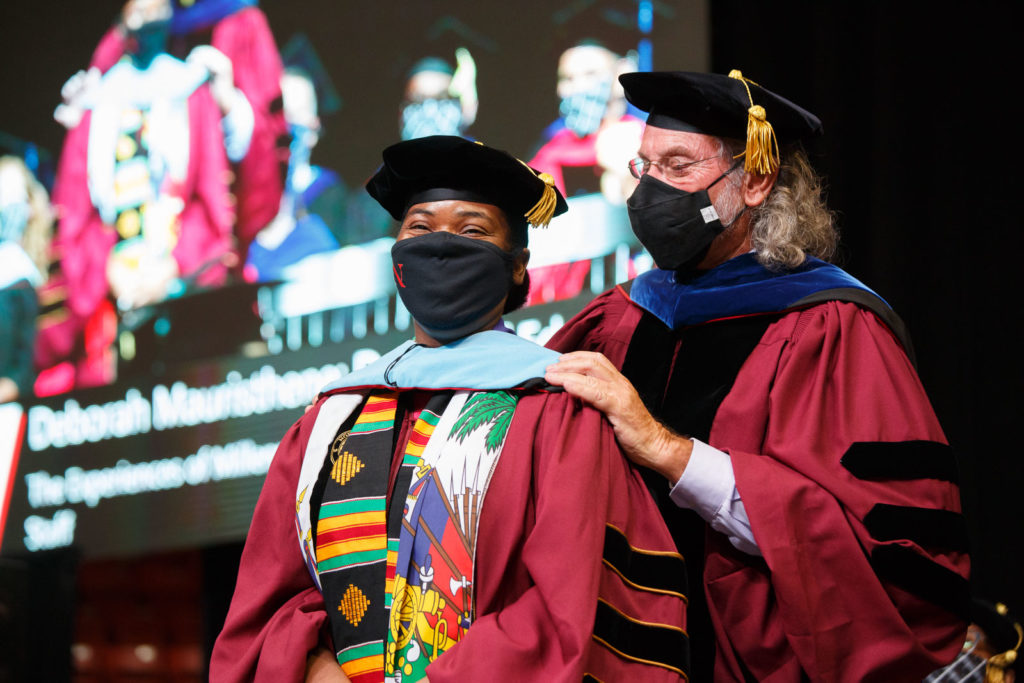
The words of Brent Musson, (Doctor of Law and Policy ’20), captured the mood at the Doctoral Hooding and Graduation Ceremony of the College of Professional Studies in Matthews Arena Sept. 9—and at the Master’s Graduation Ceremony in the same location the following day: “Humanity at its best,” the 2020 Dean’s Medal recipient said in his remarks to the successful doctoral candidates, “is humanity in gratitude.”
Gratitude was in abundance both days as faculty, administrators, students and their families—as well as friends of the College worldwide via livestream—celebrated the graduates’ achievements in the face of extraordinary challenges. Speakers at the ceremonies praised the degree recipients for their perseverance in scholarship despite a global pandemic, their passionate commitment to learning and their determination to address real-world problems in their project-based learning and research.
‘Both humility and pride’
In his opening remarks on Sept. 9, Provost and Senior Vice President for Academic Affairs David Madigan, Ph.D., welcomed the College of Professional Studies (CPS) community, expressed his faith in the graduates’ future success and his pride in their accomplishments and celebrated their membership in Northeastern’s “powerful knowledge network” dedicated to the dream of a more just and equitable society. He was followed at the podium by Interim Dean of CPS Dr. David Fields, who noted the unusual degree to which CPS students break down the barriers between work and learning.
“Our doctoral students are already fulltime professionals and leaders in their fields,” Dr. Fields observed. “In true Northeastern fashion, they are researching what they live, and living what they research, every day.”
Dr. Fields went on to explain the significance of the hooding ceremony—so-called because doctoral students traditionally have the hoods of their academic regalia lifted over their heads by faculty.
“The symbolism of the hooding ceremony at our doctoral commencement honors both the doctoral candidate’s work and the network of relationships that make that work possible,” Fields said. “[It] embodies both humility and pride, on both sides of the relationship, as faculty members welcome a new peer into their community.”
Faculty speaker Dr. Mounira Morris (B.S. ’91, M.S. ’95), assistant teaching professor and the co-lead for the Master of Education in Higher Education Administration program, offered her congratulations to the graduates and acknowledged the special challenges that had arisen during their studies, including the pandemic and the persistence of racial injustice. She quoted James Baldwin, noting his achievements as a playwright, novelist and civil rights activist: “Not everything that is faced can be changed, but nothing can be changed until it is faced.”
“To me,” Dr. Morris said, “this means that at times we will collectively endure hardship; however, we can use these experiences, especially as doctors, to offer wisdom, hope, and a better path forward.”
A longtime leader in diversity, equity and inclusion (DEI)—and currently working with colleagues at Northeastern to develop a new academic credential in DEI—Dr. Morris emphasized the power for good inherent in the attainment of an advanced degree, encouraging the graduates to find creative solutions to the challenges in their professions, communities and personal lives.
“We, as faculty,” she said, “ask that you take your research, and go out and change your world, your profession, your workplace and make it just a little bit better than before. We, as faculty, believe you can persevere and persist. We know you can.”
Intellectual explorers
Dr. Musson, whose acceptance of the 2020 Dean’s Medal had been previously postponed due to Covid-19 precautions, suggested in his remarks that the attitude of an academic researcher is “not that of an author or maker, but rather that of an explorer.” He praised the selflessness and commitment of his peers and made a critical distinction between an undergraduate education—which, he said, “teaches a student how to learn”—and a graduate education, in which students learn “to use tools … to solve other people’s problems” and to create value, going “from inward-facing to outward-facing.”
He noted that, soon after a doctoral candidate’s academic journey begins, “we become acutely aware of what we’re signing up for; to spend the next few years engaged in the most rigorous intellectual exercise of our lives, to extract a single, pure, tiny drop of insight to ever-so-slightly raise the sea level of the ocean of human knowledge.”
And he described a moment of inspiration in what he termed a spiritual awakening: a street soccer game he had observed in West Africa more than a decade earlier, where, when a beautiful goal was scored, both teams celebrated. Drawing a parallel between the players’ selfless joy and the academic community he had found at Northeastern, Dr. Musson said, “These happy boys had purpose; and that purpose made them work together, against all odds to orchestrate a moment of greatness—a moment of pure, unselfish greatness.
“I’ve never circled a soccer field making wings with my arms,” he continued, “but research has made me part of our team, and this humbling honor is our winning goal.”
As Dr. Musson finished his speech, the audience rose to deliver a sustained standing ovation.
At the conclusion of the ceremony, Dr. Madigan returned to the stage to offer closing remarks, praising the successful doctoral candidates for their “drive, dedication and sense of purpose.”
“The world is ever changing,” he said, “but you are prepared to meet—and conquer—its challenges.”
Master’s Ceremony
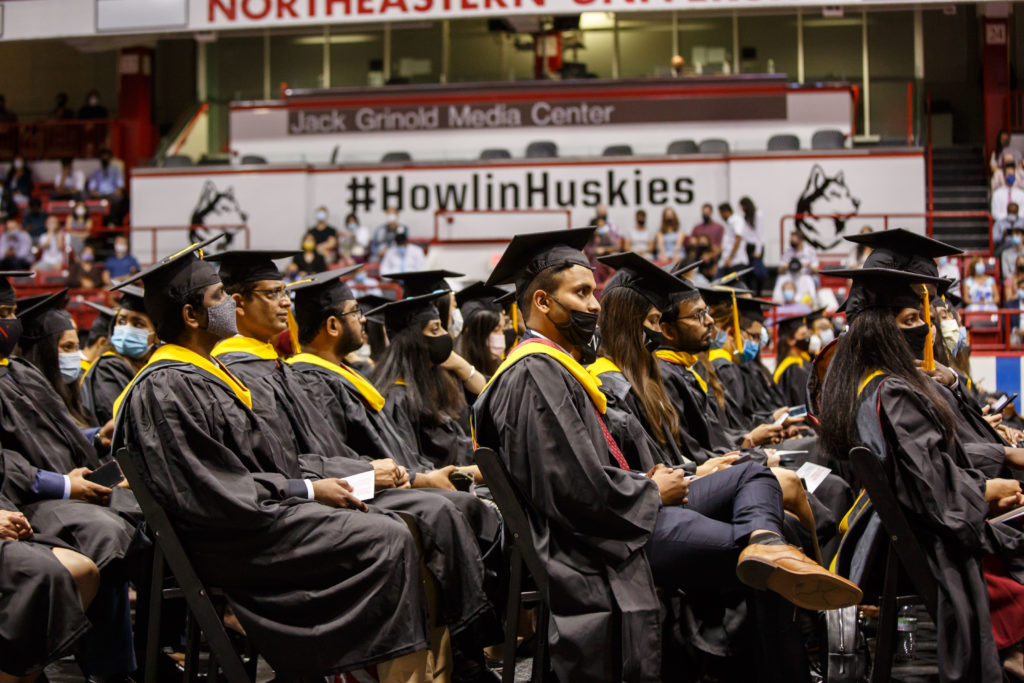
‘A day full of promise’
The following afternoon, Dr. Madigan returned to welcome master’s graduates to the arena on “a day full of promise.” He praised their “clear-eyed determination, discipline and hard work,” and offered special recognition to the faculty who, he said, by guiding the graduates to success, “have strengthened a legacy of knowledge and helped shape the future in scores of fields of professional endeavor.”
Following Dr. Madigan’s remarks, Dr. Fields spoke, celebrating the graduates’ global engagement and their cultivation of “the cultural competencies needed for a lifetime of contribution in a fast-paced, diverse, global society.” He went on to emphasize the benefits of their embrace of experiential learning, noting that in so doing, they had “addressed pressing, real-world problems” and become “well-prepared to lead from experience in the workplace.”
Dr. Fiona Creed, associate teaching professor and faculty director of the Global Studies and International Relations program, next introduced student speaker Ebony Small, ’21.
Reflecting on a year of adversity, Small observed “the pandemic itself could neither make nor break us” and asked graduates to consider the ways in which the challenges of the past 18 months had taught them to know their own courage, ambition, and steadfastness.
“We did not make it to this moment merely because we just-so-happened to survive a global pandemic,” Small said. “No, we made it here because we made the choice to value education and then fiercely pursued it. My dear friends and colleagues, despite the unexpected challenges of this year, we thrived. We grew. We changed.”
“This,” she concluded, “is what it looks like to turn a choice into a change. This is what it looks like to champion growth. Congratulations.”
From humble roots to world-renowned
Following an introduction by Dr. Earlene Avalon, associate professor and lead faculty for Health Administration and Health Sciences, graduation speaker Carl H. Whittaker, a philanthropist whose life path has spanned business, engineering and music, addressed the community.
A director of the Herb and Maxine Jacobs Foundation—which supports the College’s “A2M” or “Associates to Masters” program, offering an accelerated pathway from a community college associate’s degree to a bachelor’s at the College of Professional Studies and a master’s degree in Biotechnology at Northeastern’s College of Science—Whittaker began by invoking Northeastern’s origins as a vocational school offering evening classes, run by the YMCA.
“We all know that Northeastern is now a world-renowned university, highly ranked in many fields,” Whittaker said. “But inside this world-class institution is still the legacy of that 1898 night school.”
Whittaker linked this history with Northeastern’s emphasis on internship experiences, co-ops, and other programs that connect students to “great employers and great jobs.” He applauded the graduates for their effort and creativity in juggling jobs, families, and studies, urged them to embrace the role of mentor for other aspiring scholars, and invited them to fight income inequality—as his foundation does in part by supporting scholarships at Northeastern.
“I am inviting each of you to join my fight against economic inequality by encouraging at least one or two others to join you in earning an advanced degree,” Whittaker said. “Just be ready when you see a family member or neighbor who would value your guidance. Your friendly support might be thing that leads someone to a more prosperous and fulfilling life.”
The Doctoral Hooding and Master’s Ceremony were livestreamed from Matthews Arena. Click the links below to view recordings of the ceremonies.
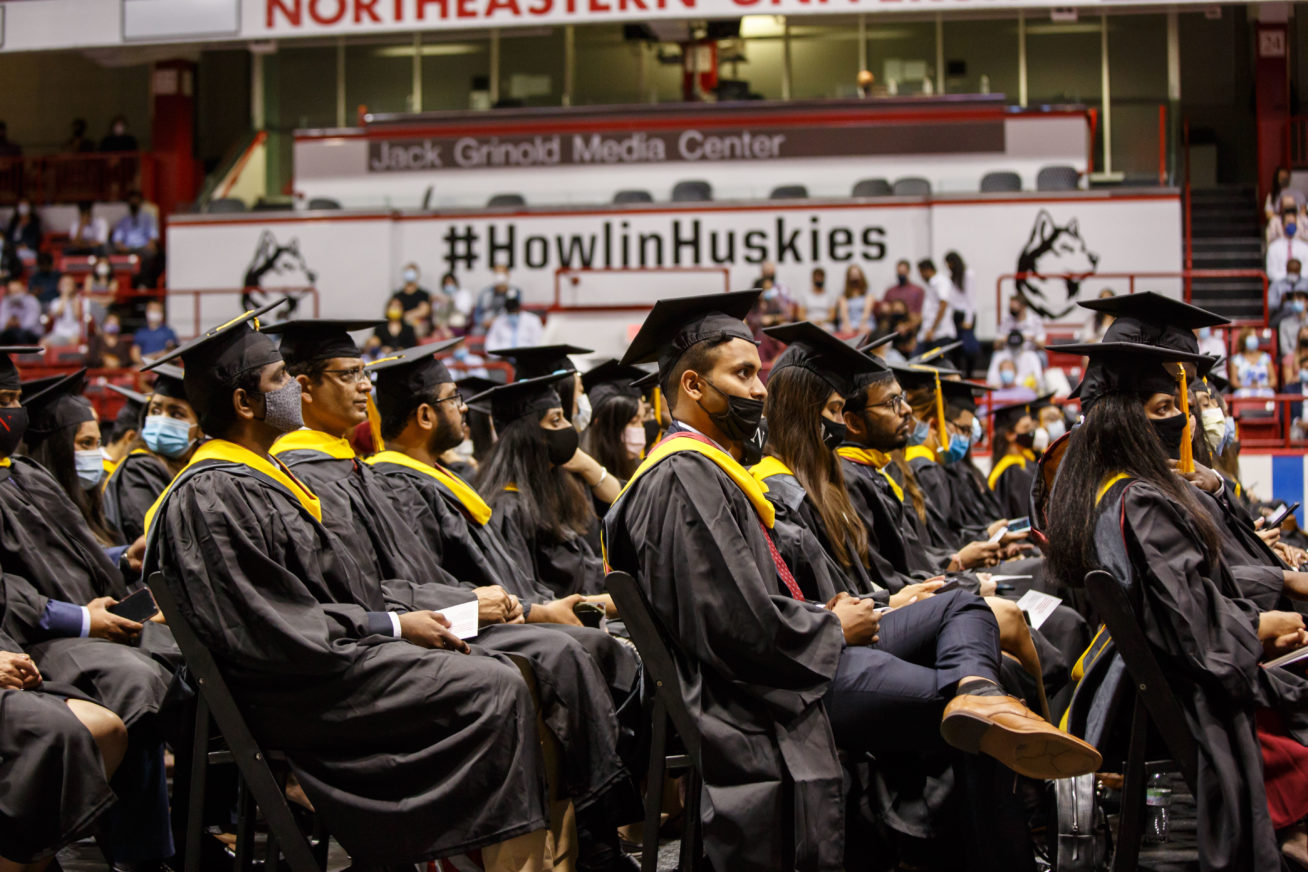
Watch the Ceremonies
The Doctoral Hooding and Master’s Ceremony were livestreamed from Matthews Arena. Click the links below to view the graduation pages and watch recordings of the ceremonies.
Learn more about our programs
The Pandemic Made the CPS Class of 2021 Double Down and Remain Focused
The pandemic was remembered at the College of Professional Studies’ master’s degree graduation ceremony on Friday as a unifying force that bred a kind of resilience and flexibility that allowed students to bend, but not break, under the pressure of a global health crisis.
“I Know He Would be So Proud” – Scholarship Donors Connect with Students
Written by Stephanie Krzyzewski
“Always, always be grateful to those who helped you.” These are the closing words of Marisa Lemus-Reynoso (Biotechnology, Class of 2023) as she addressed a crowded Raytheon Amphitheater at the annual College of Professional Studies undergraduate scholarship reception on the evening of August 19, 2021 on Northeastern’s Boston campus.
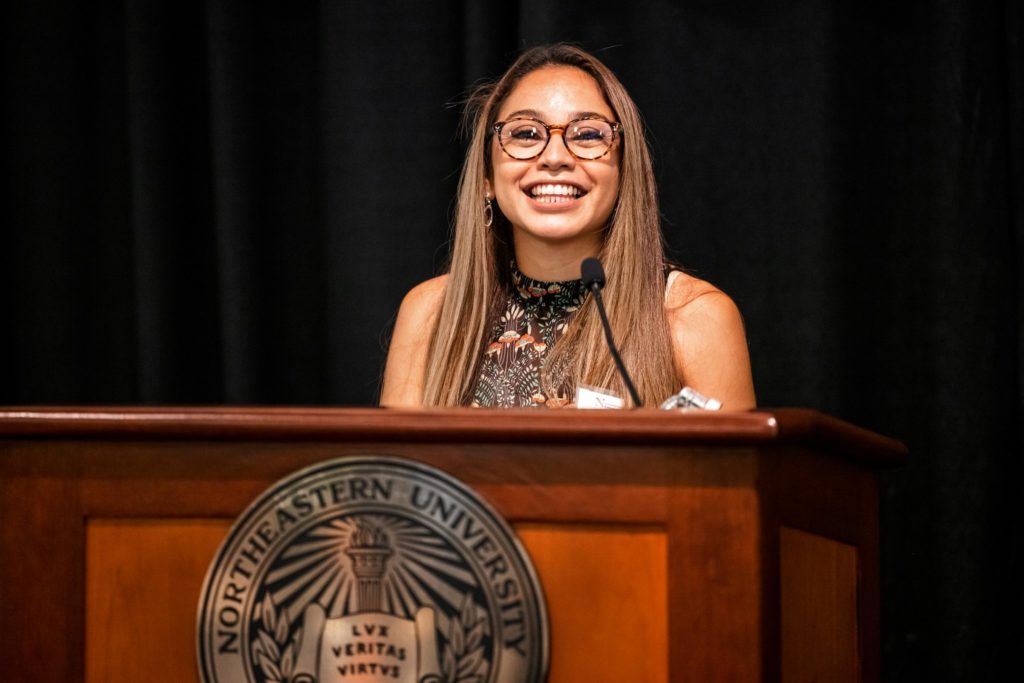
Marissa has good reason to be thankful, as do the dozens of other students in the room. A few weeks ago, they received the news that they would be receiving additional financial aid for the 2021-2022 academic year thanks to philanthropic contributions made by alumni and friends of Northeastern.
The College of Professional Studies has more than 50 scholarship funds established and supported through philanthropy throughout the past 40 years. For the upcoming academic year, this translates to approximately $400,000 in scholarship funding being awarded to more than 200 undergraduate students. Each summer the College hosts an event on campus to celebrate scholarship recipients and recognize their generous benefactors.
Marissa Lemus-Reynoso is receiving two scholarship this year – the Charles E. and Gail A. Evirs, Jr. Scholarship and the David R. Johnson Memorial Scholarship – and her benefactors were in the room on August 19 to hear her personal story and support her academic journey.
Nancy Johnson, who spoke just before Marissa, established the David R. Johnson Memorial Scholarship in memory of her late husband in 2019 along with her sister and brother-in-law, Joan and Pete Johnson. Dave, who earned his business degree from Northeastern in 1976, passed away in June 2018, and establishing the scholarship was a way for his family to find solace in his loss.
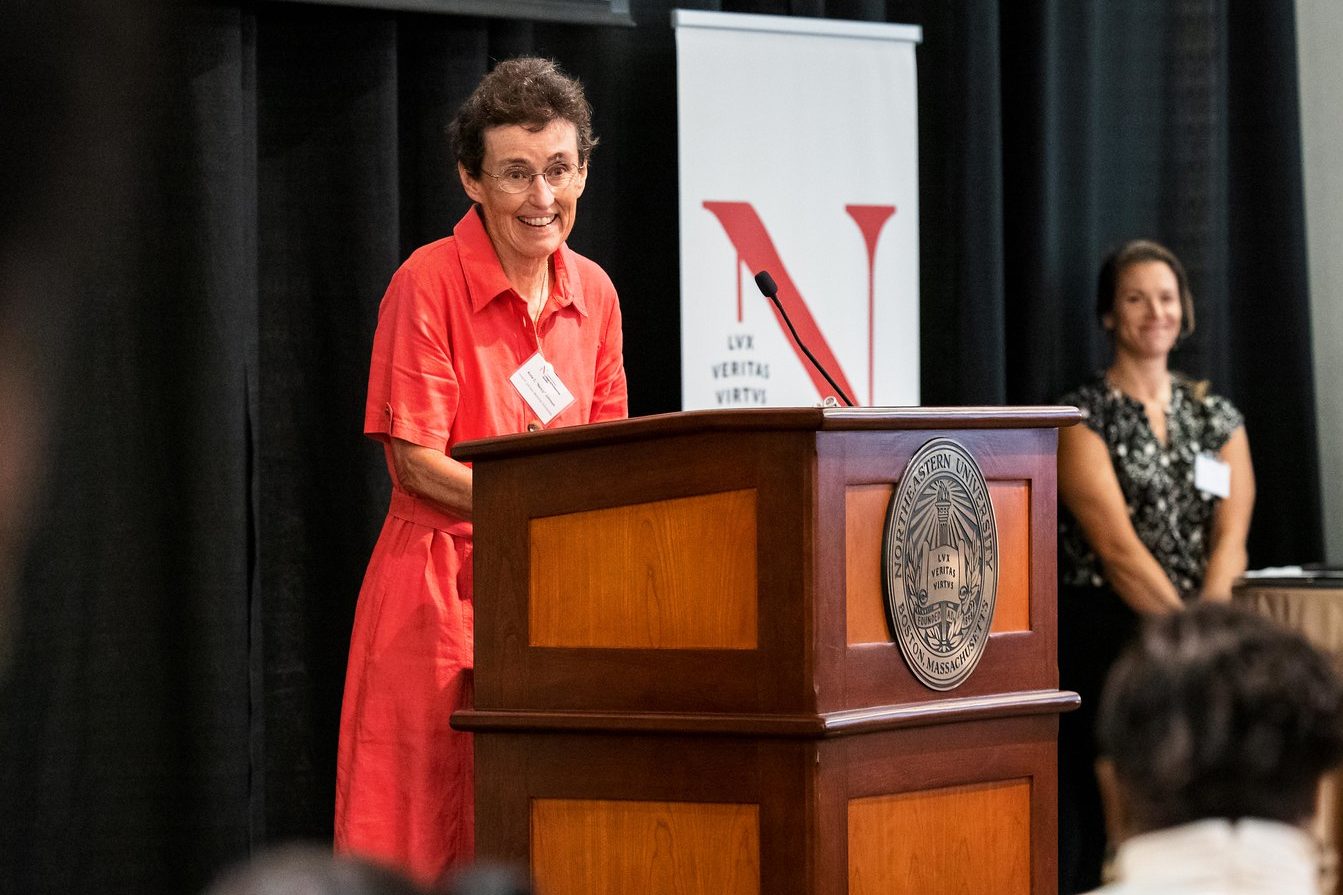
It was a special moment when Nancy introduced Marissa and invited her to take the stage, giving her an elbow-bump by way of welcome. Nancy had just finished sharing the story of Dave’s academic and professional journey, and you could hear her voice crack with emotion as she said, “Receiving this scholarship means Marissa’s life will forever be connected to Dave’s legacy, and I know he would be so proud of her if he’d had the chance to meet her.”
That sentiment is a tidy way to describe the purpose of this annual event – celebrating the impact of scholarships and the ability they have to transform lives and to foster lifelong connections among the Northeastern community.
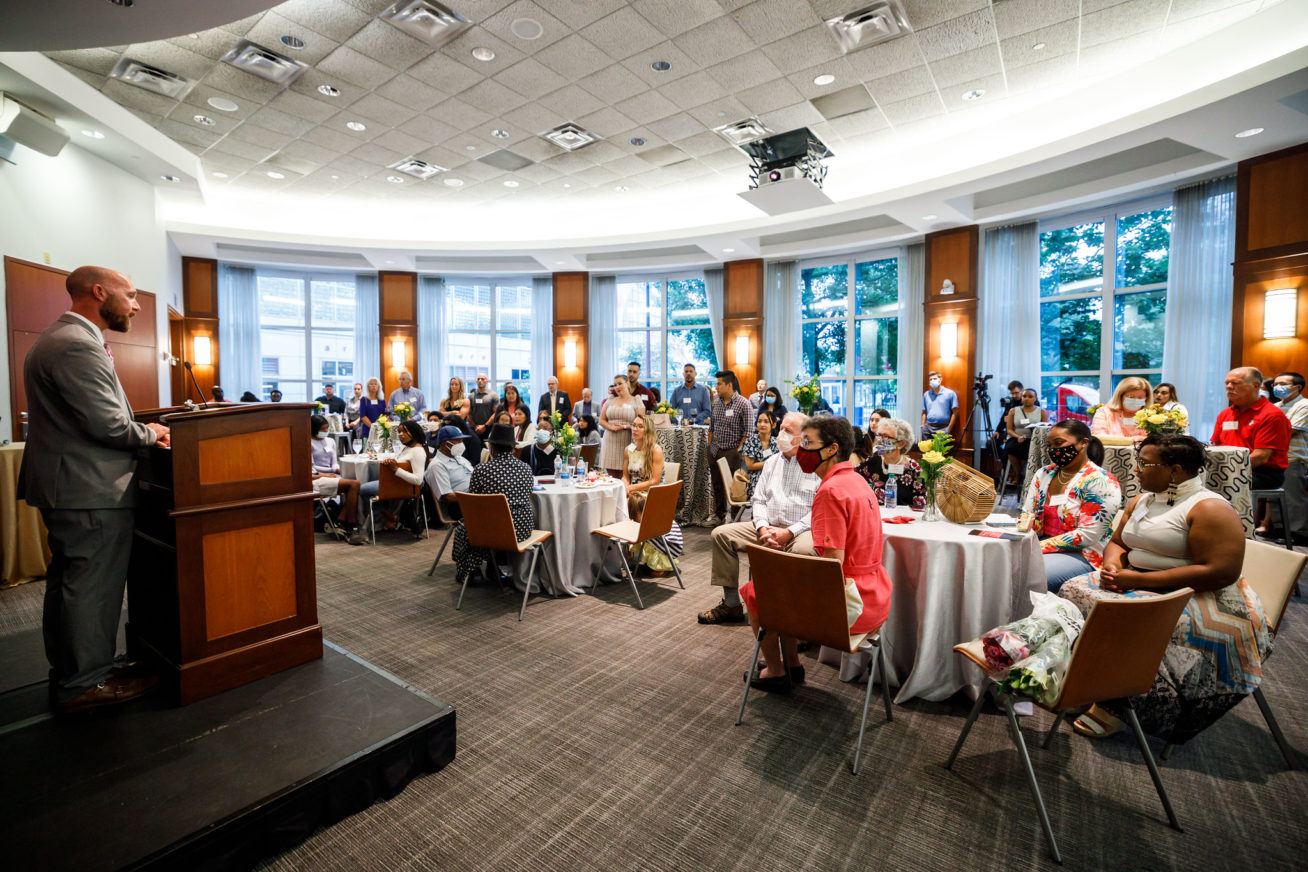
College of Professional Studies Undergraduate Scholarship Program
Learn more about undergraduate scholarships at the College of Professional Studies and view photos and video from the 2021 annual reception event.
If you have any questions about the undergraduate scholarship program at the College of Professional Studies, please contact Stephanie Krzyzewski, Director of Strategic Partnerships and Funds, at [email protected].
Wide-Ranging Research Wins Recognition at RISE Awards
Six CPS students were honored at the 2021 RISE Awards, which recognize members of the Northeastern community universitywide for exceptional work in research, innovation, scholarship and entrepreneurship.
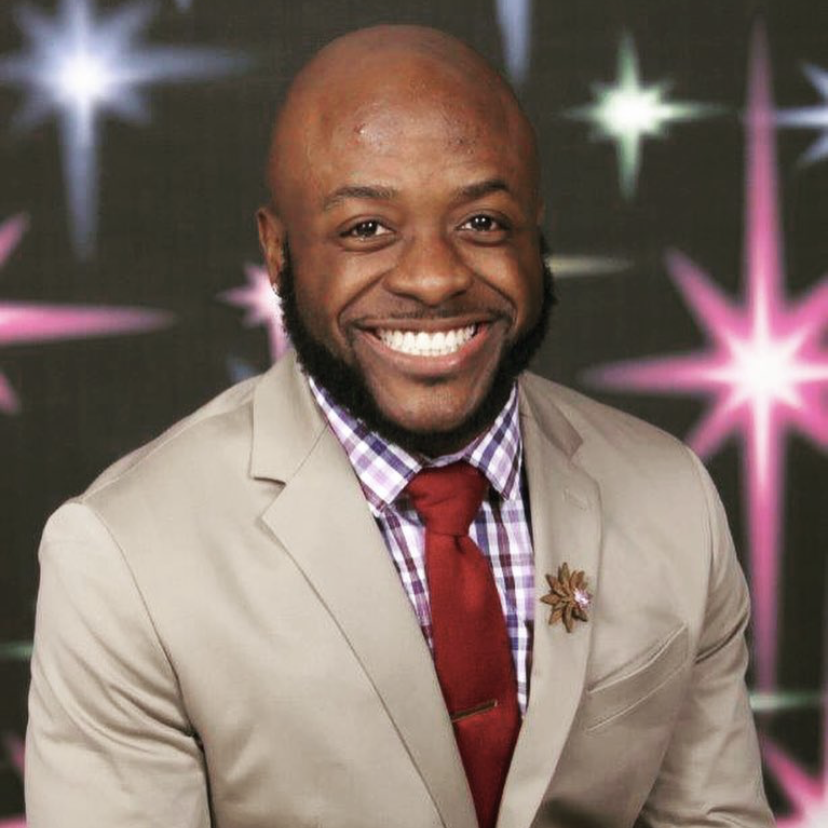
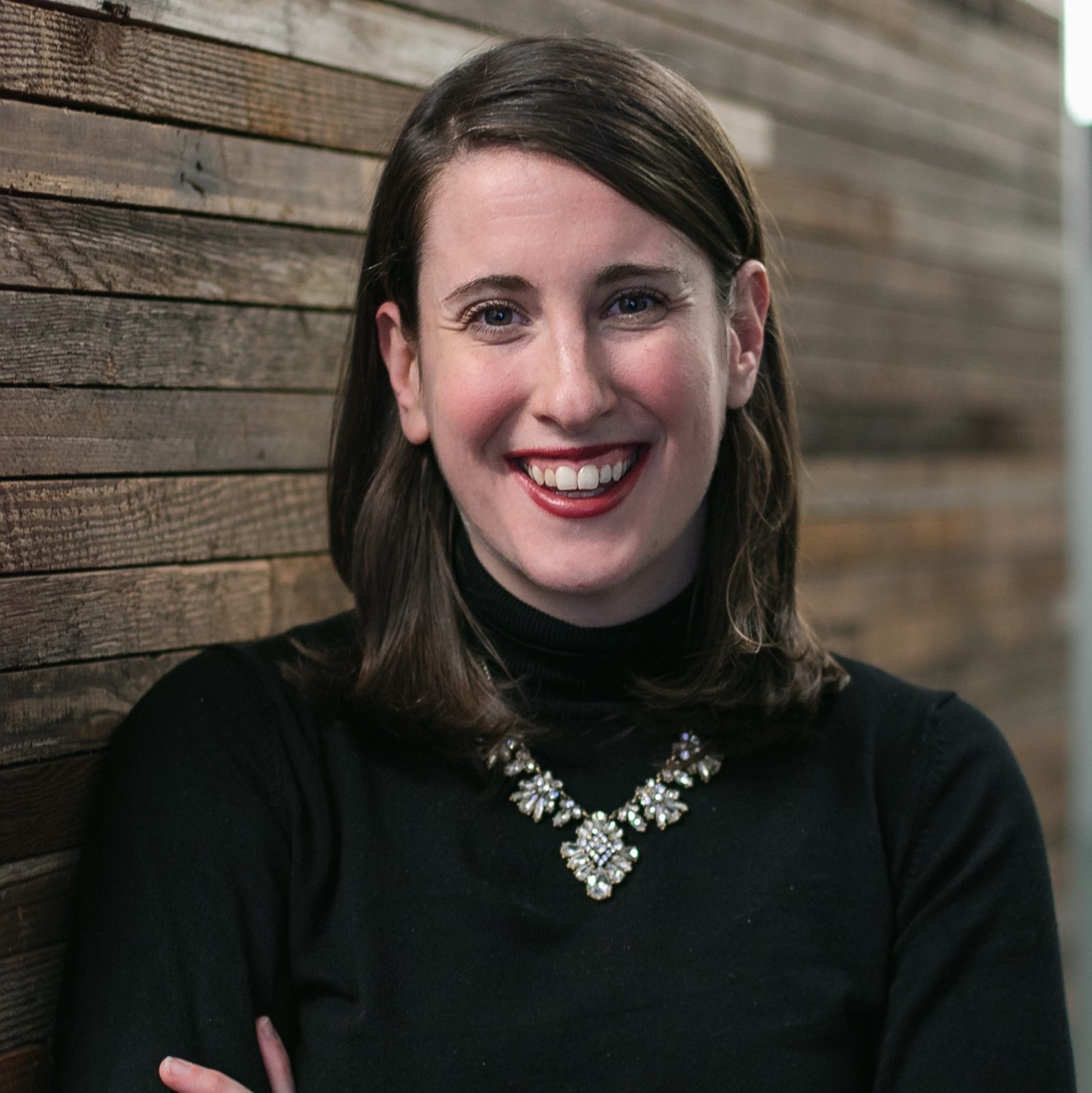
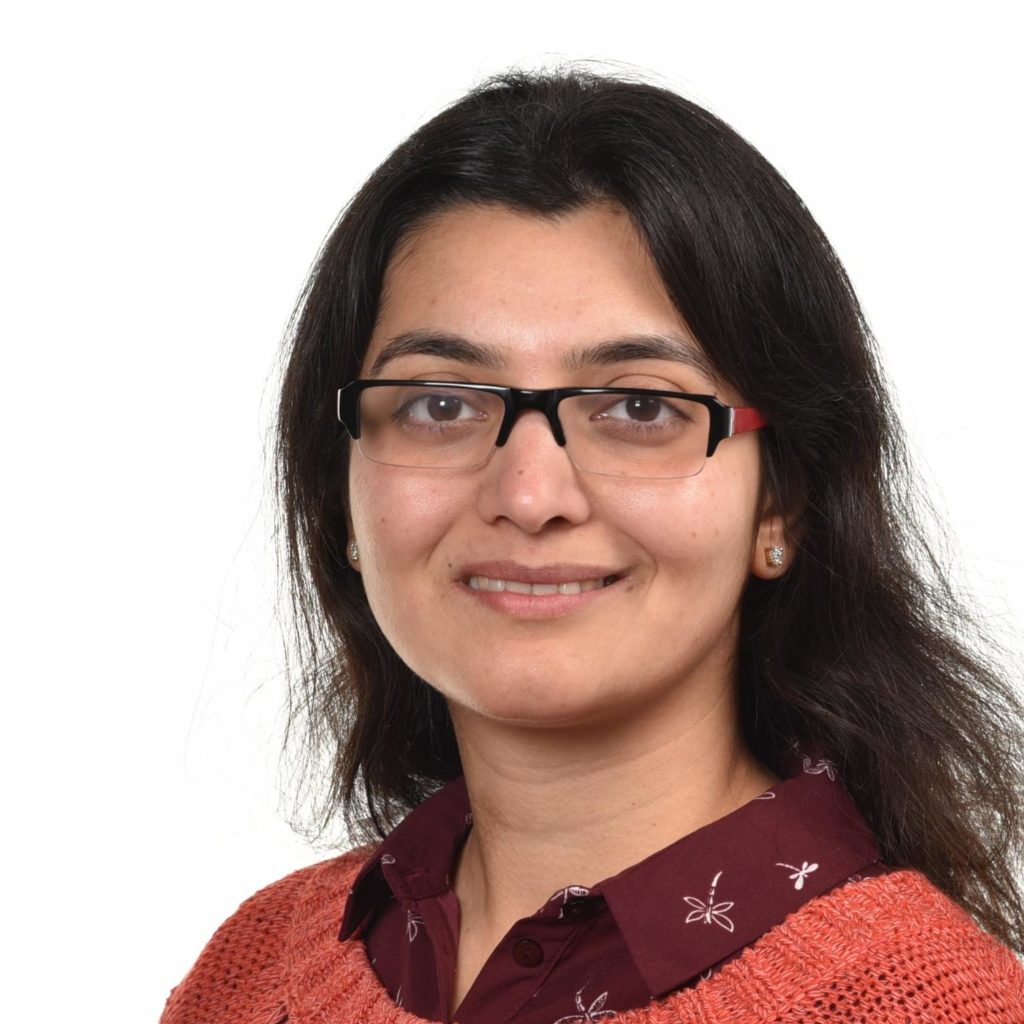
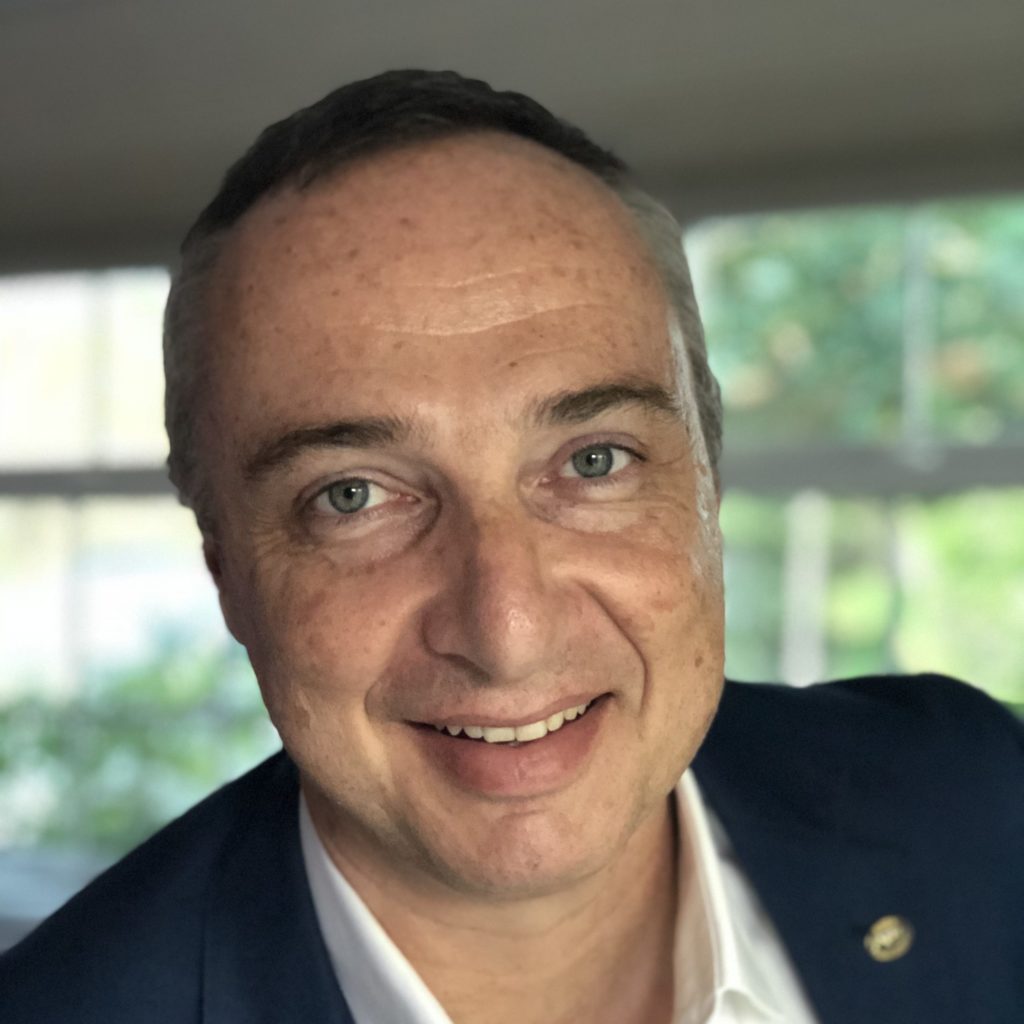
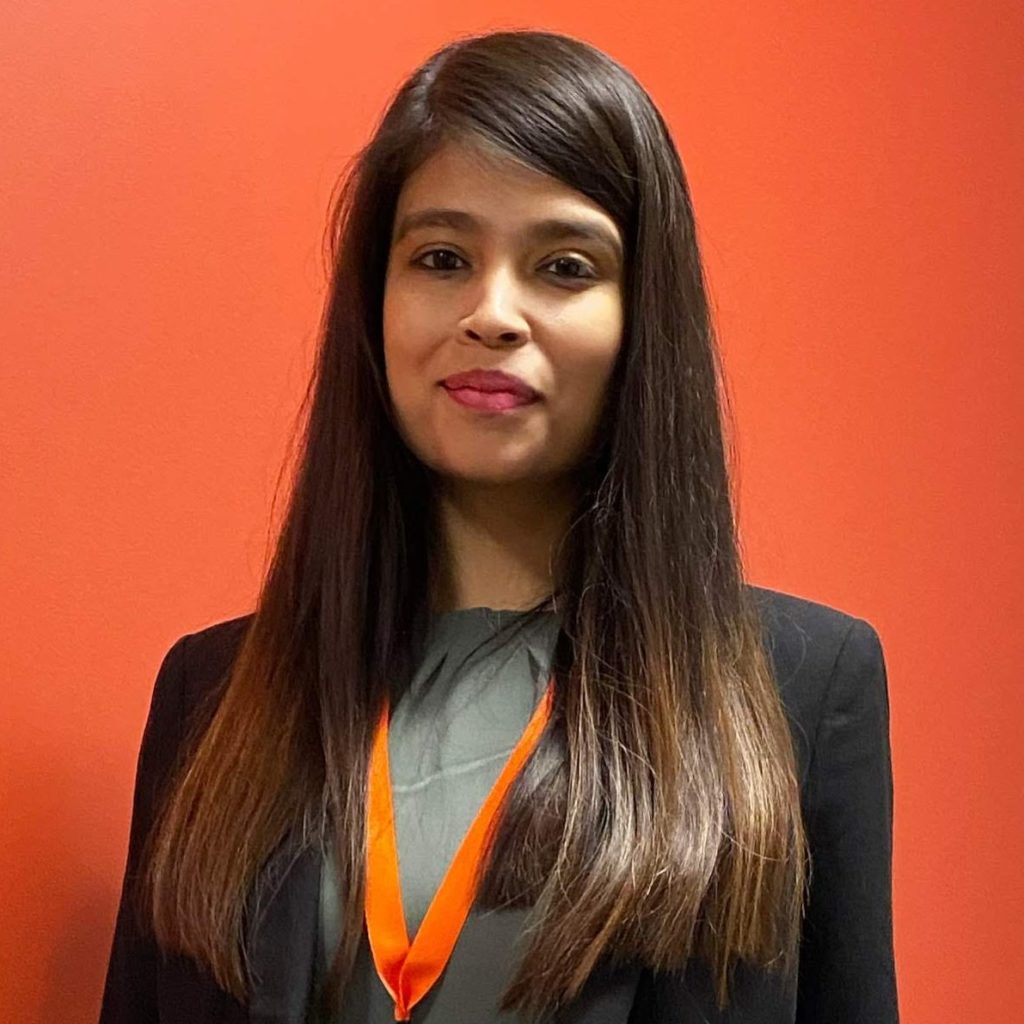

Victor Aimi (MS ’21, Corporate & Organizational Communication), Emily Bauer (EdD ’21, Higher Education Administration), Rhea (MPS ’21, Analytics), Joel Livingston (EdD ’21, Education), and Shreshthi Mehta (MS ’21, Leadership) won Focus Awards, while Kelsey Kaul (EdD ’22, Education) received a Category Award in Social Sciences, Business, and Law.
“The RISE Award means that others believe in the work I have done,” Livingston said. “I have always been someone who is self-motivated, but knowing that others see the significance of my research inspires me.”
Inclusive Engagement
Livingston was honored with the Graduate Innovator Award for “Restorative Justice Challenges and Culturally Responsive Classrooms to Improve Engagement.”
“Culturally responsive teachers create classroom environments that utilize symbolic curriculum to highlight beliefs and values related to cultural diversity and ensure that the images portrayed reflect positive aspects of multiculturalism,” Livingston said, describing his research. “Even more, culturally responsive classrooms can assist in keeping students of color engaged in class, which in return can influence positive behavior. In addition to culturally responsive classrooms, the implementation of restorative justice practices is recommended to maintain positive behavior. In many schools across the United States, restorative justice practices have been used as an alternative to suspensions, expulsions, and other exclusionary disciplinary practices. This inequality can prevent students of color from succeeding throughout their educational trajectory, leading them to misbehave more in school and the school-to-prison pipeline, which will ultimately prevent them from being successful and unlocking their full potential.”
The study for which he was recognized, he said, was designed “to ensure that restorative justice is more than just a buzzword in education.”
Diversity in Tech
In her project, “Reforming the Referral Process: Increasing Diversity for Tech Startups,” Kaul sought to address equity in the workplace.
“My research is rooted in understanding how to improve the diversity of technology teams at startups,” Kaul said. “This work is important because the technology sector impacts each of us, every day. Although the tech sector creates products for everyone, the teams that do this work are often not representative of the users they serve. The tech sector needs to increase its diversity to create better products.”
Kaul examined ways in which such companies can improve their diversity, focusing on how to ensure that referrals can diversify the pool of job candidates.
“This work is especially important to me because of my focus on ensuring the success of women and minorities in STEM,” she said. “At Northeastern I work with master’s in engineering students who are the future of the technology sector. My program is over 50% female, which is unique in this sector. In my role, I help these students prepare for their future careers in tech, but I often ask myself, where are they headed? Is the industry ready to support them? That is what led me towards this research.”
Improving Access
Supporting the success of women is at the heart of the work of Shreshthi Mehta. In “Exploring the Challenges of Employing Women as Porters in Cusco, Peru,”Mehta studied the cultural and demographic barriers preventing women from working as porters on the popular tourist trek to the Incan citadel of Machu Picchu. Her research revealed how measures to ease women’s access to such coveted jobs have proved profitable.
“Women of many cultures face several stereotypes, where they are prohibited from pursuing certain jobs or careers,” Mehta said. “The story of women porters in Cusco and their pursuit to work in a severely male dominated profession is revolutionary. It showcases the DEI [diversity, equity, and inclusion] initiatives of the owners of Evolution Treks in how diversity has proven to be beneficial to the tour company, in spite of the higher operational costs of employing women porters.”
Cross-Cultural Communications
Victor Aimi’s identity as an immigrant, he said, informed “Cultural Challenges of International Websites,” in which the native Argentine “set out to study why websites sometimes seem to have a mind of their own when accessed overseas.” In the course of his work, Aimi found that web technology is just one dimension in the more complex problem of making the web work well across borders.
“This is fascinating to me,” Aimi said, “because websites are a central part of any communications effort with international audiences, yet I did not often think of the cultural dimensions enabled by the web before this project. My habit was to just to rely on the technology.”
Receiving a RISE Award, Aimi said, illuminated his own identity in a way he hadn’t expected.
“As an immigrant I often experience cultural differences as a burden,” he said. “The award made me realize that cultural awareness can also be an advantage. I’m truly grateful to Professor Patty Goodman for helping me figure that out.”
Improving Efficiency
Rhea — who, like Aimi, is an international student—rooted her research in resource optimization, using her project, “Predicting Memory Utilization on High Performance Computing Cluster,” as an opportunity to help hone the efficiency of Northeastern’s research computer network.
“Northeastern made it easy for me to settle down in the culture,” the Analytics graduate said of emigrating to Boston from her native India. “At the very beginning of my experience, I was offered a part-time job at Northeastern, in Research Computing. I felt ecstatic and I couldn’t wait to apply all the knowledge into practice as I learned. I had a chance to learn from the best professors at CPS. This project was my chance to use my knowledge to create something for my university.”
By analyzing the way Northeastern’s high-performance computing cluster utilized memory, she developed a data analytics framework and a machine learning model that makes the cluster more efficient—and more easily accessible to researchers.
“I was lucky to have had this opportunity to learn from the best of my team here in the Research Computing department at Northeastern, and I can’t thank them enough for their constant support and motivation,” she said. “This experience has created a platform for me to move forward, and it has set a path for me to reach my career goals.”
Mental Health Literacy
Emily Bauer’s dissertation, “Mental Health Literacy in Student Affairs Graduate Preparation Programs,” focused on training non-clinical college and university student-affairs staff in identifying and intervening in emerging mental health issues for students. Citing increasing student mental-health concerns—and observing that they are now coupled with the lingering effects of the Covid-19 pandemic—Bauer described her study as a pilot education program aimed at graduate students in student affairs master’s programs “to enhance skills and confidence in the area of mental health literacy.”
Like many of her colleagues, Bauer’s research was inspired by direct experience in which she discerned a broader challenge.
“I chose the framework of mental health literacy based on my perspective as a mental health first aid instructor,” she said, “which has shown me that anyone can support and help others experiencing mental health concerns. I would like to empower those in my field to do this and take action to support students on college campuses.”
Livingston noted that his work, too, was rooted in personal experience.
“Restorative justice in schools is important to me because as a student in New York City public schools, I had several teachers who misinterpreted my lack of focus as defiance,” he said. “As a teacher/school administrator, I see many students experiencing the same issues I had. I am now in a position where I can change this narrative, and that is what I intend to do.”